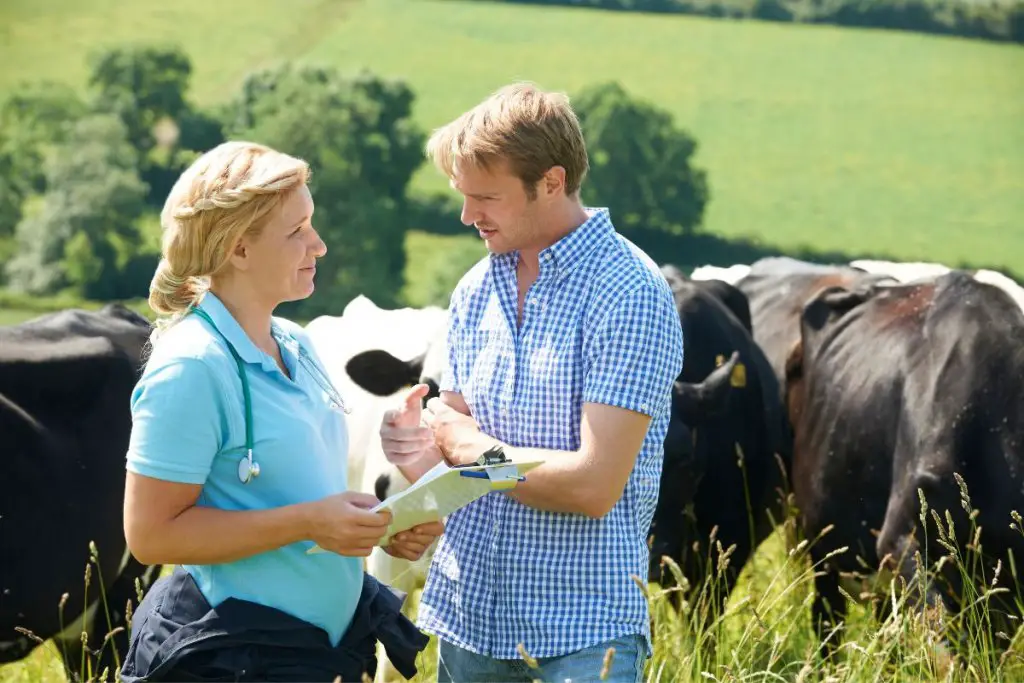Unlike a chicken, buying a cow isn’t something you should take lightly. You'll need to look at the udders and teats, the paperwork, the cow's physical characteristics as well as any training and history.
Here are the four main questions you should be asking the seller. They aren’t in any particular order and, of course, there are several other things you should quiz the seller on.
Table of Contents
1. How Do The Udder and Teats Look?
The principal reason you are buying a dairy cow is to milk it, so checking it has a healthy udder, teats and quarters are paramount. An over-zealous calf can severely damage a teat, so be careful to check for any damage. You can ask how the owner has milked the cow and request to milk the cow yourself.
The anatomy of a teat leaves it susceptible to diseases, the most common of which is mastitis. Mastitis is an infection of the mammary glands and frequently occurs when an animal’s housing is not clean and dry. Muddy conditions are particularly conducive to mastitis, as is an abundance of flies, so check the animal’s surroundings carefully.
Experienced dairy buyers even go so far as to taste a cow’s milk. After all, the flavour can sometimes tell you if something is wrong.
2. Does The Seller Possess Adequate Paperwork?
Ask the seller for all the documentation they have on a cow’s health and diseases, such as brucellosis and bovine tuberculosis, as well as age and pregnancy history.
A veterinary report via blood test can reveal if a cow has calved. A cow can only produce milk immediately after giving birth, so buying a heifer (a cow that has not calved) would be impossible when it comes to obtaining milk from her.

Try to obtain proof of the cow’s age. Younger cows obviously have a longer productive life, yet older cows are more patient and docile. She’ll be used to milking and should be tolerant of new milkers.
3. What is The Cow’s Training and History?
First time farmers typically buy cows that have some milking experience since it can be demanding to train a new cow to get milked daily. Ask the seller how they’ve gone about milking:
- Have they machine milked it or done it by hand?
- Is the cow used to being milked once or twice a day?
- How much milk can be expected from this cow?
Also ask if the owner has taught the animal to tolerate a rope or halter and if she has her head in a stanchion while being milked. These two factors will make your life considerably easier!
4. What Are The Animal’s Physical and Mental Characteristics?
Inspect the cow carefully. Is she standing placidly or fidgeting? You may notice she favours one foot over another when standing or walking due to hoof damage. Check for open wounds, general skin condition and cleanliness, especially the hooves and tail area.
When looking over her rump, ensure it is generous enough to provide straightforward calving.
Ask about her behavior if you plan on keeping her close to family pets or children, and if she’ll follow her owner. An animal reluctant to be herded can be a nightmare compared to one that simply waits at the fence for milking.
Lastly, ask what the animal has eaten, i.e. grass, hay, grain or specialized pellets. If this is not what the cow is used to, it will require time as ruminants need a change in diet to be gradual.
